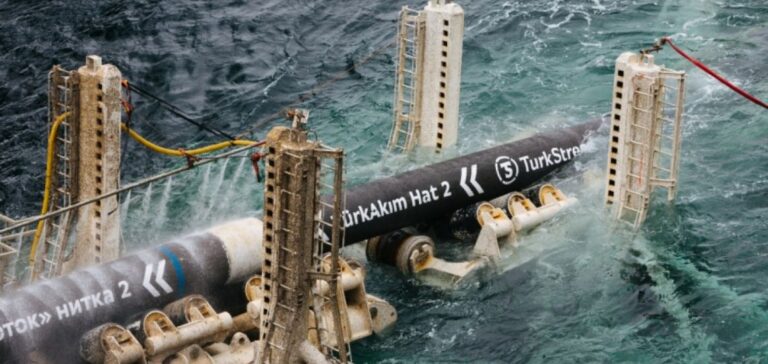In Turkey, Moscow plans to turn the country into a hub for Russian gas to mask its exports to Europe.
Creation of the gas hub
In Turkey, Russia is trying to sell its gas by blending it with gas from other resources. Russia supplied 40% of the European Union’s gas market until Moscow invaded Ukraine. Since then, the West has introduced sanctions on Russian oil and gas and reduced its purchases of Russian origin.
Following the explosion of the Nord Stream gas pipelines, Moscow proposed in October to create a gas hub in Turkey. Thus, Russia seeks to support and develop the routes in southern Europe. Without being specific, the Russian President stated that a hub could be developed in Turkey quite quickly and that European customers would like to sign contracts.
Alexei Gromov of the Moscow-based Institute for Energy and Finance Foundation says:
“Does Europe need the project, given the determination of EU countries to give up Russian gas in the near future?”
Furthermore, he states that it would be impossible to reconfigure gas flows within the European Union. Indeed, there are no existing links that would connect to the proposed hub from northwest Europe.
Russia’s exports to Europe have fallen by 43.3% this year. The TurkStream pipeline to Turkey is operating well below its annual capacity of 31.5 billion cubic meters. the pipeline is at 40% capacity and building additional infrastructure would require 3 to 4 years of construction.
Diverted routes
However, while the sources of the gas may be confusing, LNG can be exported to China from Russia. Afterwards, China can export it to another destination without mentioning its initial origin. Indeed, some buyers in southern and eastern Europe do not care about the origin of LNG.
Moscow hopes to make sales via mediators such as Turkey. For Russia, the Turkish hub represents commercial opportunities. Turkey, in this hypothesis, could include the trans-Anatolian gas pipeline in this gas hub.
For Moscow, it is an old idea to add two lines to the existing TurkStream pipeline. This solution would double the annual capacity to 63 billion cubic meters. This corresponds to the combined volumes that Russia sold via Austria, Bulgaria, Hungary, Italy, Serbia, Slovenia and Turkey in 2020.
Russia supplies gas by pipeline to Europe mainly via Ukraine. Exports amount to more than 40 million cubic meters per day, or half of sales to the European Union. The price of TurkStream is $3.2 billion, while Nord Stream 2, never launched, required an additional $11 billion.






















